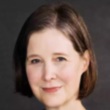The marriage plot
Description
A New York Times Notable Book of 2011A Publisher's Weekly Top 10 Book of 2011 A Kirkus Reviews Top 25 Best Fiction of 2011 Title One of Library Journal's Best Books of 2011A Salon Best Fiction of 2011 titleOne of The Telegraph's Best Fiction Books of the Year 2011 It's the early 1980s—the country is in a deep recession, and life after college is harder than ever. In the cafés on College Hill, the wised-up kids are inhaling Derrida and listening to Talking Heads. But Madeleine Hanna, dutiful English major, is writing her senior thesis on Jane Austen and George Eliot, purveyors of the marriage plot that lies at the heart of the greatest English novels.As Madeleine tries to understand why "it became laughable to read writers like Cheever and Updike, who wrote about the suburbia Madeleine and most of her friends had grown up in, in favor of reading the Marquis de Sade, who wrote about deflowering virgins in eighteenth-century France," real life, in the form of two very different guys, intervenes. Leonard Bankhead—charismatic loner, college Darwinist, and lost Portland boy—suddenly turns up in a semiotics seminar, and soon Madeleine finds herself in a highly charged erotic and intellectual relationship with him. At the same time, her old "friend" Mitchell Grammaticus—who's been reading Christian mysticism and generally acting strange—resurfaces, obsessed with the idea that Madeleine is destined to be his mate.Over the next year, as the members of the triangle in this amazing, spellbinding novel graduate from college and enter the real world, events force them to reevaluate everything they learned in school. Leonard and Madeleine move to a biology Laboratory on Cape Cod, but can't escape the secret responsible for Leonard's seemingly inexhaustible energy and plunging moods. And Mitchell, traveling around the world to get Madeleine out of his mind, finds himself face-to-face with ultimate questions about the meaning of life, the existence of God, and the true nature of love.Are the great love stories of the nineteenth century dead? Or can there be a new story, written for today and alive to the realities of feminism, sexual freedom, prenups, and divorce? With devastating wit and an abiding understanding of and affection for his characters, Jeffrey Eugenides revives the motivating energies of the Novel, while creating a story so contemporary and fresh that it reads like the intimate journal of our own lives.
More Details
9781410444530
9781427213082
9781427213099
Excerpt
Similar Titles From NoveList
Similar Authors From NoveList
Published Reviews
Booklist Review
*Starred Review* In Eugenides' first novel since the Pulitzer Prize-winning Middlesex (2002), English major and devotee of classic literature Madeleine Hanna is a senior at Reagan-era Brown University. Only when curiosity gets the best of her does she belly up to Semiotics 211, a bastion of postmodern liberalism, and meet handsome, brilliant, mysterious Leonard Bankhead. Completing a triangle is Madeleine's friend Mitchell, a clear-eyed religious-studies student who believes himself her true intended. Eugenides' drama unfolds over the next year or so. His characteristically deliberate, researched realization of place and personality serve him well, and he strikes perfectly tuned chords by referring to works ranging from Barthes' Lovers' Discourse to Bemelmans' Madeline books for children. The remarkably a propos title refers to the subject of Madeleine's honors thesis, which is the Western novel's doing and undoing, in that, upon the demise, circa 1900, of the marriage plot, the novel didn't mean much anymore, according to Madeleine's professor and, perhaps, Eugenides. With this tightly, immaculately self-contained tale set upon pillars at once imposing and of dollhouse scale, namely, academia ( College wasn't like the real world, Madeleine notes) and the emotions of the youngest of twentysomethings, Eugenides realizes the novel whose dismantling his characters examine.. HIGH-DEMAND BACKSTORY: The publisher will be cashing in on the popularity of Middlesex, especially with public library users, by targeting much of their publicity campaign in that direction.--Bostrom, Annie Copyright 2010 Booklist
Publisher's Weekly Review
In Eugenides's perceptive new novel set in the early 1980s, the three sides of a love triangle-Brown University undergraduates Madeleine, Leonard, and Mitchell-come of age in a complicated and heady environment of semiotics, religious mysticism, sexual freedom, and economic recession. After graduation, the three are forced to confront their relationships, secrets, and desires as they attempt to find their way in the real world. David Pittu brilliantly narrates this audio version of Eugenides's complex novel, whether he's rattling off quotes from Jacques Derrida and Roland Barthes or creating unique voices for the book's many characters. Among the standouts are his renditions of the slow and reflective Mitchell and Thurston, the star of the semiotics seminar who speaks in a falsely laconic and disinterested fashion to impress his classmates and professor. And while Pittu's rendition of Madeline is too soft and flat, he never runs out of voices for this large, global cast. The result is one of the best audiobooks of the year. A Farrar, Straus and Giroux hardcover. (Oct.) (c) Copyright PWxyz, LLC. All rights reserved.
Library Journal Review
"The way of true love never works out, except at the end of an English novel." So says Trollope in Barchester Towers, one of those English novels where "the marriage plot" thrived until it was swept aside by 20th-century reality. Now Roland Barthes's contention that "the lover's discourse is today of an extreme solitude" better sums up the situation. Or so English literature-besotted Madeleine, 1980s Brown graduating senior, comes to discover. Giving in to the zeitgeist, Madeleine takes a course on semiotics and meets Leonard, who's brilliant, charismatic, and unstable. They've broken up, which makes moody spiritual seeker Mitchell Grammaticus happy, since he pines for Madeleine. But on graduation day, Madeleine discovers that Leonard is in the hospital-in fact, he is a manic depressive with an on-again, off-again relationship with his medications-and leaps to his side. So begins the story of their love (but does it work out?), as Mitchell heads to Europe and beyond for his own epiphanies. VERDICT Your standard love triangle? Absolutely not. This extraordinary, liquidly written evocation of love's mad rush and inevitable failures will feed your mind as you rapidly turn the pages. Highly recommended. [See Prepub Alert, 4/11/11.]-Barbara Hoffert, Library Journal (c) Copyright 2011. Library Journals LLC, a wholly owned subsidiary of Media Source, Inc. No redistribution permitted.
Kirkus Book Review
A stunning novelerudite, compassionate and penetrating in its analysis of love relationships.Eugenides focuses primarily on three characters, who all graduate from Brown in 1982. One of the pieces of this triangle is Madeleine Hanna, who finds herself somewhat embarrassed to have emerged from a "normal" household in New Jersey (though we later find out the normality of her upbringing is only relative). She becomes enamored with Leonard, a brilliant but moody student, in their Semiotics course, one of the texts being, ironically, Roland Barthes'A Lover's Discourse, which Madeleine finds disturbingly problematic in helping her figure out her own love relationship. We discover that Leonard had been diagnosed with bipolar disorder during his first year at Brown, and his struggle with mood swings throughout the novel is both titanic and tender. The third major player is Mitchell, a Religious Studies major who is also attracted to Madeleine but whose reticence she finds both disturbing and incomprehensible. On graduation day, Leonard has a breakdown and is hospitalized in a mental-health ward, and Madeleine shows her commitment by skipping the festivities and seeking him out. After graduation, Leonard and Madeleine live together when Leonard gets an internship at a biology lab on Cape Cod, and the spring after graduation they marry, when Leonard is able to get his mood swings under temporary control. Meanwhile Mitchell, who takes his major seriously, travels to India seeking a pathand briefly finds one when he volunteers to work with the dying in Calcutta. But Mitchell's road to self-discovery eventually returns him to the Statesand opens another opportunity for love that complicates Madeleine's life.Dazzling workEugenides continues to show that he is one of the finest of contemporary novelists.]] Copyright Kirkus Reviews, used with permission.
Booklist Reviews
"*Starred Review* In Eugenides' first novel since the Pulitzer Prize–winning Middlesex (2002), English major and devotee of classic literature Madeleine Hanna is a senior at Reagan-era Brown University. Only when curiosity gets the best of her does she belly up to Semiotics 211, a bastion of postmodern liberalism, and meet handsome, brilliant, mysterious Leonard Bankhead. Completing a triangle is Madeleine's friend Mitchell, a clear-eyed religious-studies student who believes himself her true intended. Eugenides' drama unfolds over the next year or so. His characteristically deliberate, researched realization of place and personality serve him well, and he strikes perfectly tuned chords by referring to works ranging from Barthes' Lovers' Discourse to Bemelmans' Madeline books for children. The remarkably à propos title refers to the subject of Madeleine's honors thesis, which is the Western novel's doing and undoing, in that, upon the demise, circa 1900, of the marriage plot, the novel "didn't mean much anymore," according to Madeleine's professor and, perhaps, Eugenides. With this tightly, immaculately self-contained tale set upon pillars at once imposing and of dollhouse scale, namely, academia ("College wasn't like the real world," Madeleine notes) and the emotions of the youngest of twentysomethings, Eugenides realizes the novel whose dismantling his characters examine. HIGH-DEMAND BACKSTORY: The publisher will be cashing in on the popularity of Middlesex, especially with public library users, by targeting much of their publicity campaign in that direction." Copyright 2011 Booklist Reviews.
Library Journal Reviews
A Pulitzer Prize winner for Middlesex, which has sold more than three million copies, and of the darkly delicious The Virgin Suicides (catch the Sofia Coppola film), Eugenides doesn't necessarily need me to rave about him. But I'm so taken with the idea behind this novel. Madeleine Hanna, a conscientious, neatly dressed English major in the early 1980s, blissfully reads Austen while everyone else studies Derrida. (Yes, I remember it well.) She finally decides to get hip by taking a semiotics class, where she meets irresistible loner Leonard Morten, who teaches her about more than signs and symbols. Meanwhile, the wittily named Mitchell Grammaticus, a voice from Madeleine's past, demands that they spend their lives together. A novel of ideas and triangular love from the brilliantly off-kilter Eugenides; with a one-day laydown, a national tour, library marketing, and a reading group guide. Get multiples.
[Page 66]. (c) Copyright 2010. Library Journals LLC, a wholly owned subsidiary of Media Source, Inc. No redistribution permitted.Library Journal Reviews
"The way of true love never works out, except at the end of an English novel." So says Trollope in Barchester Towers, one of those English novels where "the marriage plot" thrived until it was swept aside by 20th-century reality. Now Roland Barthes's contention that "the lover's discourse is today of an extreme solitude" better sums up the situation. Or so English literature-besotted Madeleine, 1980s Brown graduating senior, comes to discover. Giving in to the zeitgeist, Madeleine takes a course on semiotics and meets Leonard, who's brilliant, charismatic, and unstable. They've broken up, which makes moody spiritual seeker Mitchell Grammaticus happy, since he pines for Madeleine. But on graduation day, Madeleine discovers that Leonard is in the hospital—in fact, he is a manic depressive with an on-again, off-again relationship with his medications—and leaps to his side. So begins the story of their love (but does it work out?), as Mitchell heads to Europe and beyond for his own epiphanies. VERDICT Your standard love triangle? Absolutely not. This extraordinary, liquidly written evocation of love's mad rush and inevitable failures will feed your mind as you rapidly turn the pages. Highly recommended. [See Prepub Alert, 4/11/11.]—Barbara Hoffert, Library Journal
[Page 83]. (c) Copyright 2011. Library Journals LLC, a wholly owned subsidiary of Media Source, Inc. No redistribution permitted.Publishers Weekly Reviews
Eugenides's first novel since 2002's Pulitzer Prize–winning Middlesex so impressively, ambitiously breaks the mold of its predecessor that it calls for the founding of a new prize to recognize its success both as a novel—and as a Jeffrey Eugenides novel. Importantly but unobtrusively set in the early 1980s, this is the tale of Madeleine Hanna, recent Brown University English grad, and her admirer Mitchell Grammaticus, who opts out of Divinity School to walk the earth as an ersatz pilgrim. Madeleine is equally caught up, both with the postmodern vogue (Derrida, Barthes)—conflicting with her love of James, Austen, and Salinger—and with the brilliant Leonard Bankhead, whom she met in semiotics class and whose fits of manic depression jeopardize his suitability as a marriage prospect. Meanwhile, Mitchell winds up in Calcutta working with Mother Theresa's volunteers, still dreaming of Madeleine. In capturing the heady spirit of youthful intellect on the verge, Eugenides revives the coming-of-age novel for a new generation The book's fidelity to its young heroes and to a superb supporting cast of enigmatic professors, feminist theorists, neo-Victorians, and concerned mothers, and all of their evolving investment in ideas and ideals is such that the central argument of the book is also its solution: the old stories may be best after all, but there are always new ways to complicate them. (Oct.)
[Page ]. Copyright 2011 PWxyz LLC


































